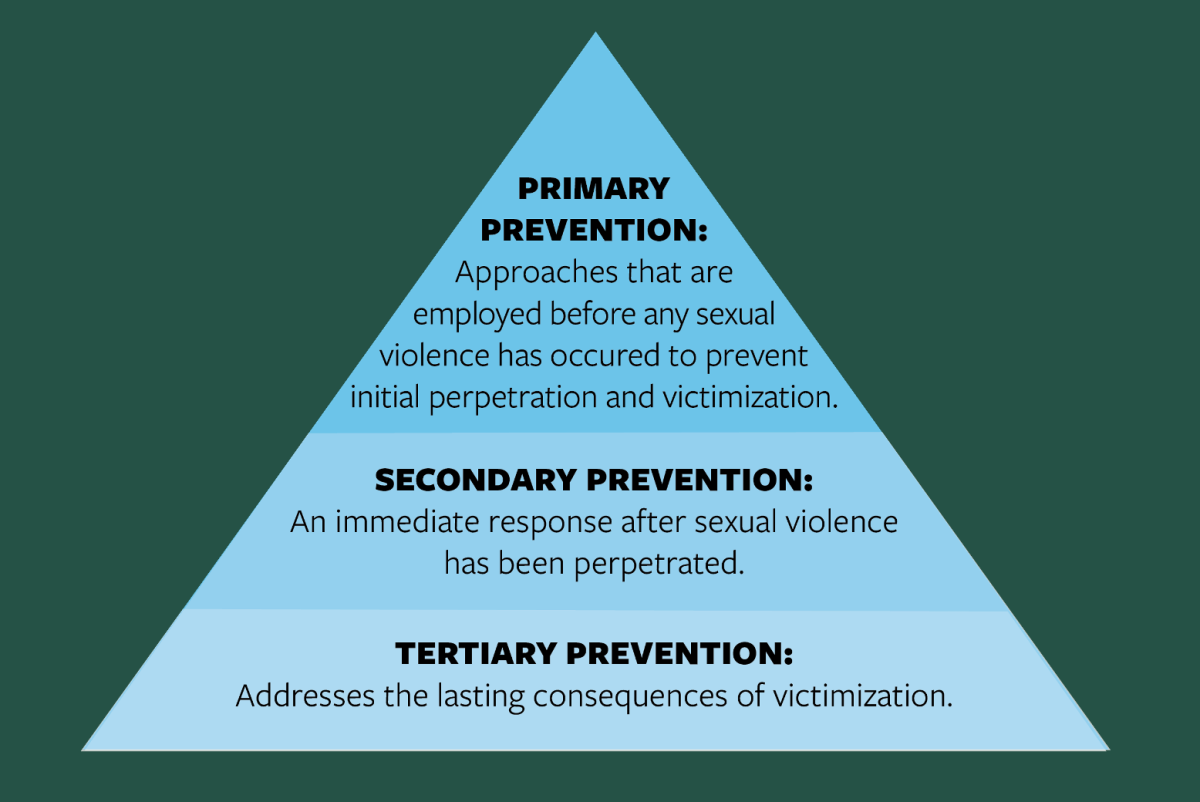Tulane's All In Plan
The All In 2.0 strategic plan presented here was developed after reviewing the 2022 Sexual Misconduct Climate Survey data and was created with input from campus experts and stakeholders, including student leaders. This review led to increased understanding of the circumstances and factors that are unique to Tulane and could reduce the perpetration and victimization of students. Building off the first All In plan launched in 2018, the All In 2.0 plan launched in 2023 and provides a vision and plan forward for entrenching and expanding sexual violence prevention work here on Tulane’s campus. Read the 2022 Tulane Sexual Misconduct Climate Survey Executive Report & Action Plan to review the full All In 2.0 plan.
Please note that the All In plan is continually reviewed and may be adjusted to meet current community needs. For questions about the current status of any All In 2.0 tactics, please email Tulane's Title IX Office at titleix@tulane.edu. Participation in All In programs is open to all students, faculty, and staff. Legally protected demographic classifications such as race, national origin, sex, age, disability, veteran status, etc. are not relied upon as an eligibility or participation criteria for employment or educational programs or activities.
What is Sexual Violence Prevention?

Sexual Violence Prevention refers to efforts intended to stop the perpetration of unhealthy, harmful, dangerous, and illegal behavior and acts, as well as victimization and re-victimization by others.
Prevention efforts include developing the attitudes, knowledge, skills, behaviors, and resources necessary to promote individual student and Tulane community health, safety, and wellbeing (ATSA, 2018).
The field of public health prevention defines three levels of prevention in a social or health problem, primary, secondary, and tertiary.
Scope of the Problem at Tulane
The 2022 Sexual Misconduct Climate Survey indicates that sexual violence remains a pervasive issue on campus and a public health matter that must continue to be addressed. The results for undergraduates indicate that 30% of female students, 25% of gender non-conforming, non-binary and transgender students and 11% of male students and 12% of graduate women and 3% of graduate men have been raped during their time at Tulane.
Students also report significant rates of domestic violence victimization. Among undergraduates, 25% of female-identified, 32% of gender non-conforming, non-binary and transgender and 16% of male-identified respondents report experiencing domestic violence while enrolled at Tulane. Among graduate respondents, 16% of female-identified, 13% of gender non-conforming, non-binary and transgender and 8% of male-identified students reported domestic violence.
One area of specific concern is the use of alcohol and drugs during incidents of unwanted sexual contact and/or rape. Most victims indicate that they had used alcohol or drugs and that the offender had also used alcohol or drugs during the incident. In addition, 92% of female victims, 90% of male victims and 77% of gender non-conforming, non-binary and transgender students reported being incapacitated at the time of their rape.
Specific populations of concern include heterosexual females and those who identify as LGBTQ+. Thirty-five percent of heterosexual females report being victims of unwanted sexual contact and 25% report being victims of rape. Among LGBQ+ students, 42% of female-identifying, 30% of male-identifying and 32% of gender non-conforming, non-binary and transgender students report being victims of unwanted sexual contact. Additionally, 2% of LGBQ+ women and 22% of GBQ+ men report being victims of rape. The majority (82%) of victims reported that their offender identified as male. These populations and area of concern may require specific focus.
Members of the All In Working Group and Coalition to Stop Sexual Violence (university stakeholders responsible for developing this strategic plan) felt it was important to broadly name and define our stance on sexual violence, with a public campaign and acknowledgement of the work we still have to do.
The All In Strategic Plan makes our response clear to students. As we move forward with prevention efforts, our mission is to combat sexual violence at Tulane and beyond. To that end, we are continuing six goals from the original All In plan and establishing two new goals to support that mission:

The first four goals of the All In plan are indexed in tertiary prevention strategies, which work to create shared knowledge and language, supportive community systems and effective institutional policies and practices to intervene in the lasting impact of sexual violence on the Tulane community. These are the goals that ask every member of the Tulane community to be “all in” on combatting sexual violence.
Our next two goals are focused on primary prevention initiatives and providing students with the skills, knowledge and resources they need to have healthy, safe relationships. They are also focused on preventing harm by establishing protective norms and accountability measures around those who weaponize alcohol or other drugs when committing an act of sexual violence.
The final two goals are focused on preventing retraumatization and revictimization of those members of our community who have already experienced violence or harm. These goals, founded in secondary prevention strategies, are designed to support and empower the students harmed while at Tulane as well as the significant portion of Tulane students who come to Tulane with a history of prior victimization. These strategies prioritize expanding trauma-informed care practices on campus and focusing assessment efforts on understanding the impact of interpersonal violence on student success and wellbeing.
In addition to making use of all three levels of intervention, the All In 2.0 plan includes objectives, strategies and tactics that focus on specific sub-groups of students. The proposed plan includes existing resources and efforts being re-directed, along with initiatives that will require added resources and support for implementation. Read the 2022 Tulane Sexual Misconduct Climate Survey Executive Report & Action Plan to review the full All In 2.0 plan.
To provide feedback on the All In 2.0 Plan, please email titleix@tulane.edu
